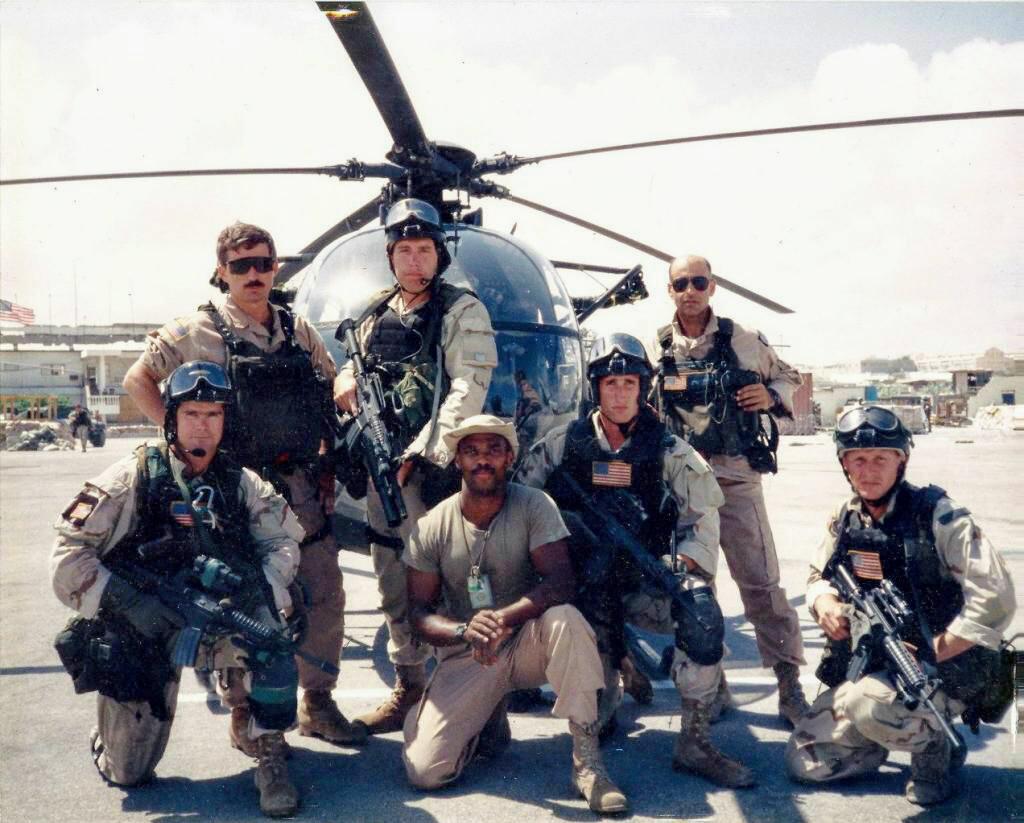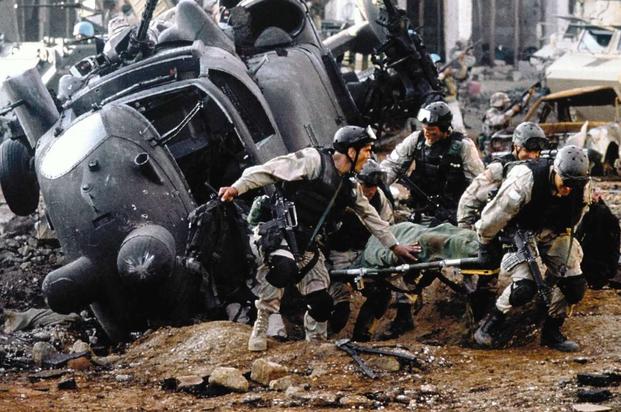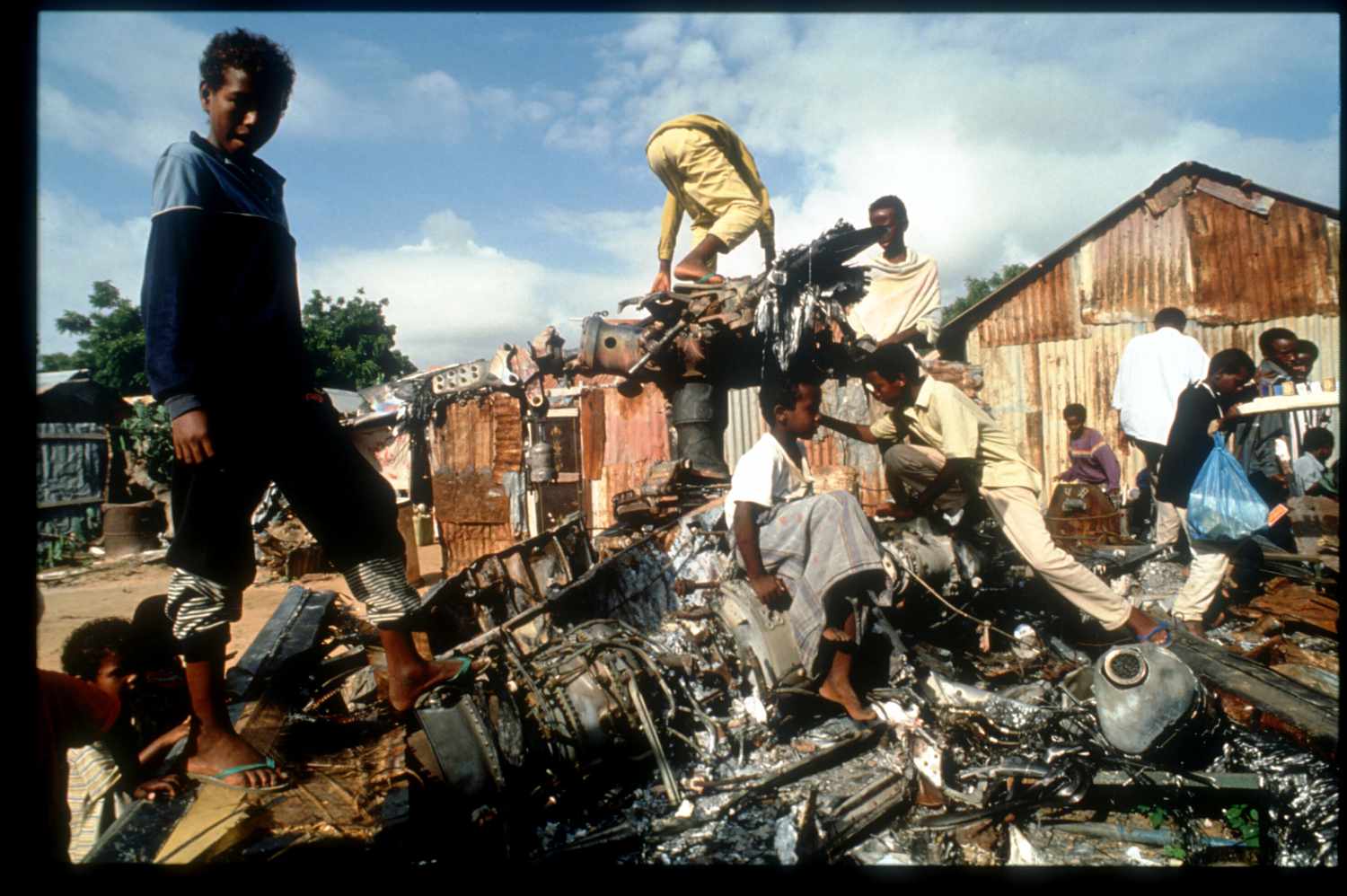30 Year Anniversary of the Battle of Mogadishu – Black Hawk Down
Patrik Orcutt 10.12.23

The Battle of Mogadishu, also known as the Black Hawk Down incident, stands as one of the most infamous and consequential events in modern military history. This battle took place in the heart of Somalia’s capital, Mogadishu, on October 3rd – 4th, 1993, and was part of Operation Gothic Serpent, a United Nations and U.S. mission aimed at capturing key lieutenants of the warlord Mohamed Farrah Aidid. What was initially intended as a brief and routine mission would turn into a prolonged firefight, testing the resolve and courage of American and coalition forces.
Military Coverage on AllOutdoor
- Garmont Women’s T8 Athena Military Boots – Thoughtfully-Designed
- Pendleton Whisky 2023 Military Edition – Supporting our Military Personnel
- NEW Revision Military I-Vis Technology Enhanced Ballistic Eyewear
- Gerber Offers Custom StrongArm for Military Appreciation Month
The roots of the Battle of Mogadishu can be traced back to the early 1990s when Somalia was engulfed in a devastating famine and civil war. The United Nations, with the support of the United States, initiated a humanitarian intervention mission in 1992 to provide aid and restore order to the war-torn nation. However, the situation on the ground quickly escalated, as various factions, including warlords like Mohamed Farrah Aidid, resisted the UN’s efforts to establish stability.

Operation Gothic Serpent was a mission designed to capture or neutralize several of Aidid’s top lieutenants, thereby undermining his power and influence in Mogadishu. The operation was conducted by Task Force Ranger, an elite and highly trained U.S. Special Operations unit, supported by elements from the United Nations and other coalition forces. On the morning of October 3, 1993, Task Force Ranger launched its operation with the objective of capturing two of Aidid’s senior advisors in the Bakara Market area of Mogadishu. The operation involved two UH-60 Black Hawk helicopters transporting U.S. Army Rangers and Delta Force operators to the target location. The mission appeared to be routine, with an expectation of minimal resistance.
However, as the first Black Hawk, callsign “Super Six One,” touched down, it was hit by a rocket-propelled grenade (RPG) and crashed to the ground. The second Black Hawk, “Super Six Four,” met the same fate shortly after. This unexpected turn of events marked the beginning of a protracted and intense battle as U.S. forces found themselves outnumbered and under heavy fire from Aidid’s militia. The battle that ensued was characterized by relentless enemy fire, intense urban warfare, and the heroic efforts of American and coalition forces to rescue their comrades. Soldiers from Task Force Ranger fought valiantly to secure the crash sites and protect their injured comrades while facing overwhelming enemy numbers. In the face of mounting casualties and a desperate need for reinforcements, a convoy of armored vehicles was dispatched to extract the besieged troops. However, the narrow and winding streets of Mogadishu made it challenging for the convoy to navigate, and it came under heavy attack as well.

The rescue efforts continued throughout the night, with American soldiers and their coalition allies displaying unwavering determination and courage. Two Delta Force operators, Master Sergeant Gary Gordon and Sergeant First Class Randy Shughart, volunteered to defend the crash site of “Super Six Four,” knowing that it was a suicide mission. They fought valiantly to protect the wounded crew members but were eventually overrun by the enemy and killed.
As the night wore on, the situation remained dire. Reinforcements arrived, and efforts to secure the crash sites intensified. Eventually, all surviving U.S. troops were successfully extracted from Mogadishu, but the battle had exacted a heavy toll. Eighteen American soldiers had been killed, and dozens more were wounded. Many Somali militiamen were also killed or wounded.
The Battle of Mogadishu had a profound impact on U.S. foreign policy and military strategy. The high number of casualties and the intense media coverage of the battle led to a reevaluation of U.S. involvement in Somalia. Within a few months, American forces withdrew from the country, and the UN mission ultimately ended in 1995.
The battle also prompted a reassessment of military tactics, equipment, and training for urban warfare. Lessons learned from Mogadishu influenced the development of new strategies and equipment for U.S. special operations forces.
Additionally, the Battle of Mogadishu became the subject of books, documentaries, and the 2001 film “Black Hawk Down,” directed by Ridley Scott, which brought the events of that night to a wider audience.
The Battle of Mogadishu, also known as the Black Hawk Down incident, remains a vivid testament to the bravery and sacrifice of American and coalition forces in the face of adversity. What began as a routine mission to capture Aidid’s lieutenants turned into a protracted and intense battle in the streets of Mogadishu, testing the resolve of those involved. The heroism displayed by the soldiers who fought in the Battle of Mogadishu and the memory of those who made the ultimate sacrifice continue to inspire and remind us of the human cost of military operations in complex and dangerous environments.
